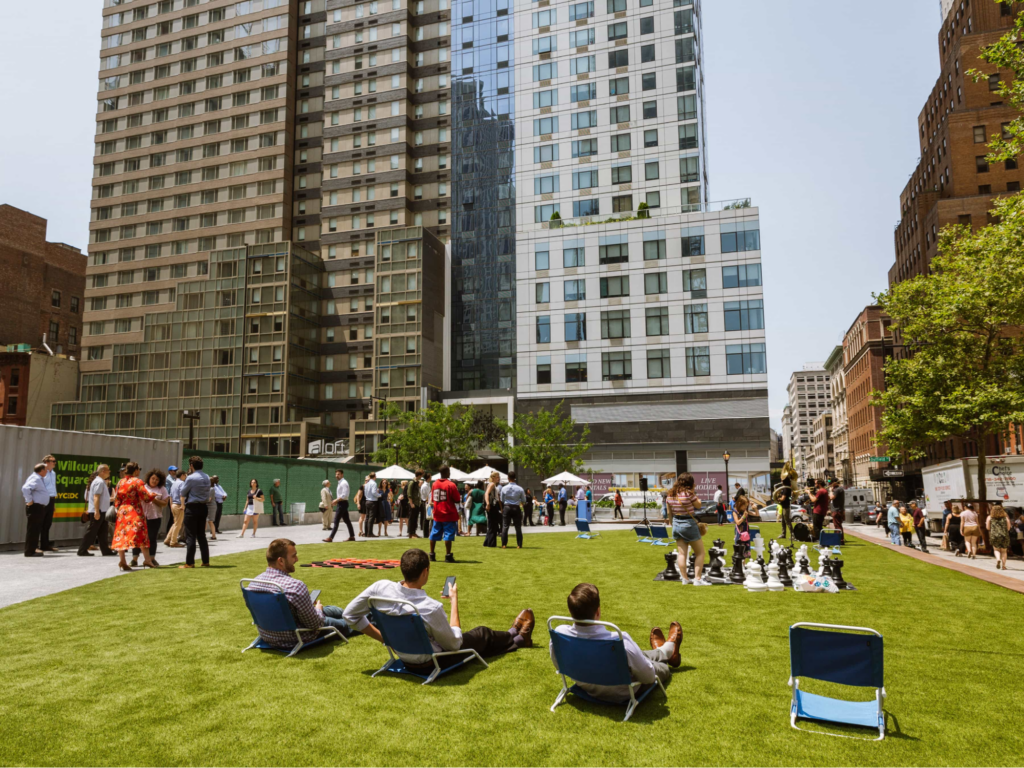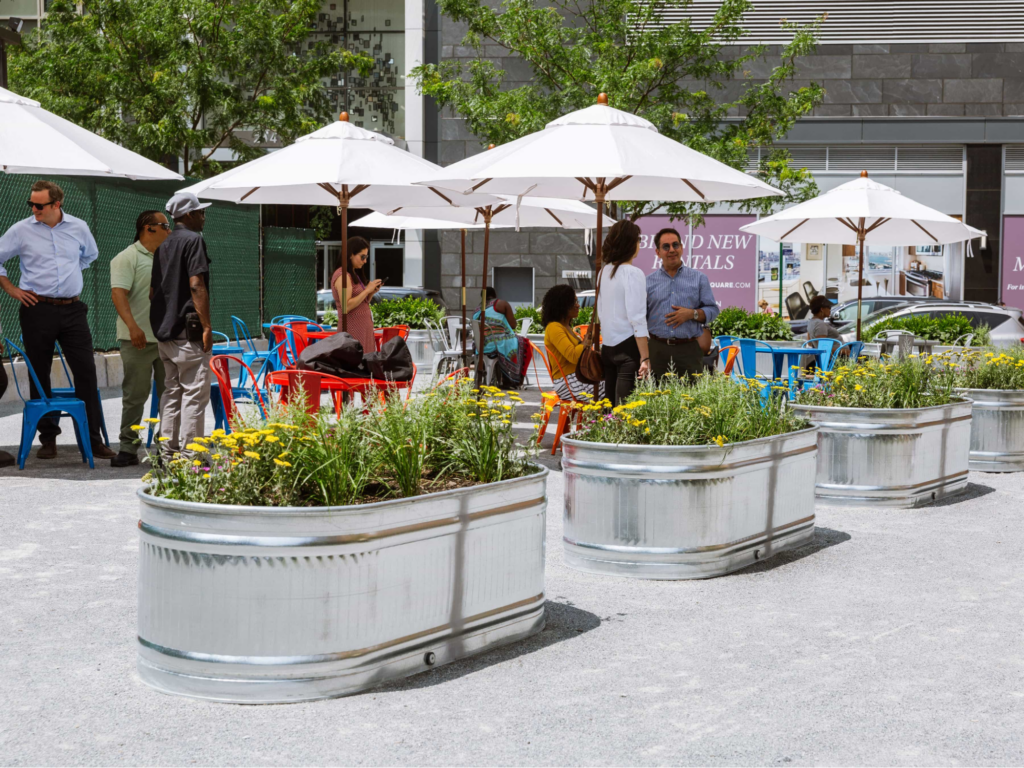Eco-park designs are all about creating sustainable, beautiful, and functional areas that everyone can enjoy. They are a unique opportunity to contribute positively to the environment, and they’re ideal for communities that want to embrace natural beauty.
Let’s explore everything you need to know about eco-parks, including what they are, the key elements that define them, and some exciting eco-park design ideas to transform any space into an eco-friendly haven.
Are you ready?
What Qualities Define an Eco-Park Design?
An eco-park design prioritizes sustainability and environmental harmony. It incorporates natural elements and innovative development techniques to minimize ecological impact. The goal is to create spaces that support local wildlife, manage water efficiently, and reduce carbon footprints.
Eco-parks also focus on community engagement and education. These spaces often include areas for recreation, learning, and social interaction. By integrating nature with a practical design, eco-parks can become valuable assets for both people and the planet.
Key Elements of all Eco-Park Design Ideas
 Creating an eco-park involves several key elements that ensure sustainability and functionality. Here are ten essential elements of an eco-park design:
Creating an eco-park involves several key elements that ensure sustainability and functionality. Here are ten essential elements of an eco-park design:
Permeable Pavers
Permeable pavers allow water to infiltrate the ground in order to reduce runoff and promote groundwater recharge. By mimicking natural processes, they help manage stormwater effectively and prevent flooding, which makes them an essential element for eco-park pathways and parking areas.
Native Plants
Using native plants ensures that your flora is well-suited to the local climate, and will require less water and maintenance. Native plants support local wildlife, resist pests better, and enhance the ecological balance to create a more resilient and thriving park environment.
Green Roofs
Green roofs provide insulation, reduce heat island effects, and offer additional green space in urban areas. They absorb rainwater, provide a habitat for wildlife, and can be used for urban agriculture, which makes them a multifunctional feature in eco-parks.
Rain Gardens
Rain gardens capture and filter rainwater to help improve water quality and provide habitats for wildlife. These gardens help manage stormwater runoff from roofs, driveways, and streets by reducing pollution to help enhance your park’s overall aesthetic appeal.
Solar Lighting
Solar-powered lighting reduces energy consumption and utilizes renewable energy sources. It provides reliable, off-grid lighting solutions that minimize environmental impact and operational costs so that your park remains illuminated and safe without contributing to carbon emissions.
Wildlife Habitats
Creating designated areas for wildlife encourages biodiversity and supports local ecosystems. By including features such as birdhouses, insect hotels, and natural shelters, eco-parks can become sanctuaries for various species to help promote environmental stewardship and education.
Recycling Stations
Recycling stations promote waste reduction and educate visitors on the importance of recycling. If you place them strategically throughout the park, they can help keep the area clean and teach visitors about sustainable waste management practices.
Walking Trails
Natural walking trails encourage physical activity and offer serene spaces for visitors to connect with nature. Designed with sustainable materials, walking trails provide safe and accessible routes for exercise, relaxation, and wildlife observation.
Water Features
Sustainable water features, like ponds and fountains can enhance the aesthetic appeal and support aquatic life. These features can be designed to recycle water and integrate with rainwater harvesting systems to add beauty and ecological value to the park.
Educational Signage
Informative signs can educate visitors about the park’s eco-friendly features and the importance of environmental conservation. By highlighting the sustainable practices implemented in your eco-park, they can help foster environmental awareness and inspire visitors to adopt similar practices in their daily lives.
Introducing TRUEGRID® ROOT®

TRUEGRID® ROOT® is the ideal product for creating eco-friendly park designs. Its permeable paving system supports sustainable landscaping by allowing water to pass through in order to reduce runoff and promote groundwater recharge. This innovative solution is perfect for pathways, parking areas, and other surfaces that require durability and eco-friendliness.
Beyond its environmental benefits, TRUEGRID® ROOT® is easy to install and maintain. It offers a strong, stable surface that can withstand heavy use, which makes it perfect for public parks and recreational areas. When you use TRUEGRID® ROOT®, you can create a beautiful, sustainable space that benefits both people and the planet.
5 Unique Eco-Park Design Ideas
Designing an eco-park involves creativity and a deep understanding of sustainable practices. Here are five unique ideas to inspire your eco-park design:
1. Green Parking Solution

The grass pavers in this image create a stable and permeable parking area that blends seamlessly with the surrounding greenery. This design helps manage stormwater efficiently while also providing a natural look that is perfect for eco-park environments.
2. Sustainable Seating Area

Permeable pavers form the foundation of this outdoor seating area that allows water runoff to be minimized and absorbed naturally. The pavers provide a solid yet eco-friendly surface for communal activities and gatherings in the park.
3. Urban Green Space

In this urban eco-park, permeable pavers from TRUEGRID® support the lush green space that is a sustainable and attractive natural setting for relaxation and social interaction. The pavers also help manage water flow in order to reduce the urban heat island effect.
4. Community Hub

Permeable pavers serve as the base for this vibrant community area, complete with seating and planters. The pavers facilitate water drainage and create a durable, low-maintenance surface that enhances the park’s sustainability.
5. Sustainable Parking

The extensive use of permeable pavers in this parking area showcases their ability to support both grassy areas and pathways. By allowing water to pass through, the permeable pavers maintain the parking lot’s natural beauty and contribute to effective stormwater management.
Create an Eco-Park Design with TRUEGRID® ROOT®

Ready to transform your eco-park design ideas into an eco-friendly reality?
Using permeable pavers from TRUEGRID® makes it easier than ever to implement sustainable design elements that enhance beauty and functionality.
Whether you’re planning a community park or a private garden, our products offer the perfect solution for a durable, environmentally friendly surface.
Contact us today to learn more!



